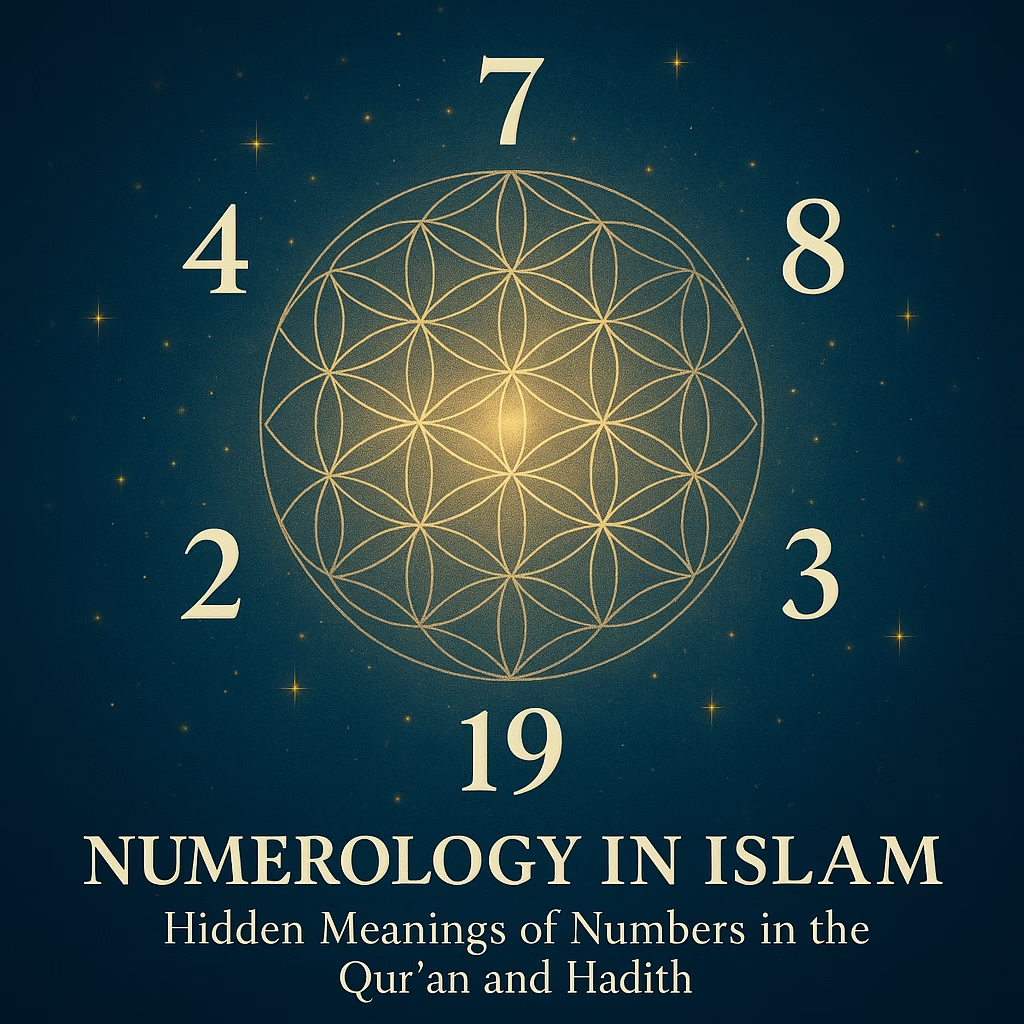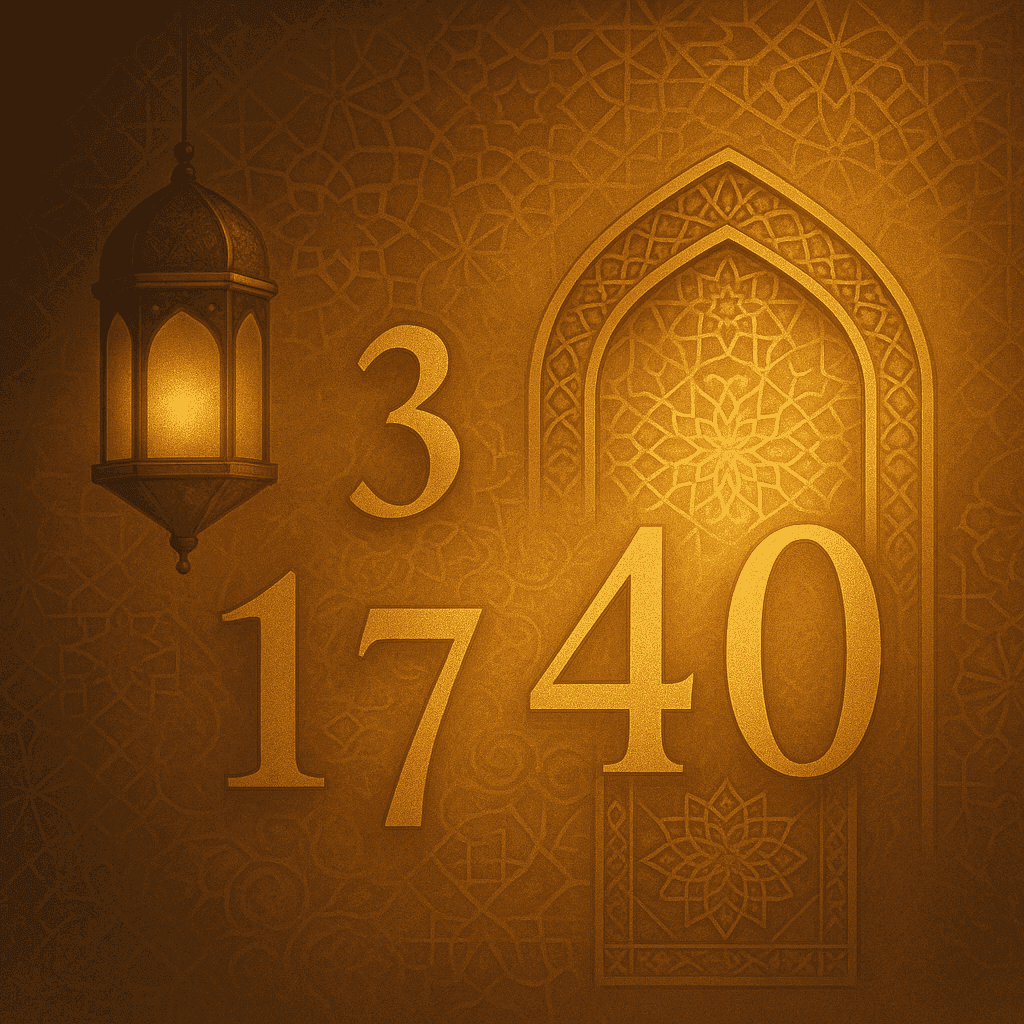Introduction
In many religious traditions, numbers hold profound symbolic meaning. Islam is no exception. From the seven heavens to the nineteen angels of Hell, Islamic scripture and prophetic sayings hint at a deep metaphysical language hidden in numbers. This isn’t about fortune-telling or speculative numerology, but a respectful look at the patterns Allah placed in creation and revelation.
This blog explores the spiritual significance of key numbers in the Qur’an and Hadith, drawing from classical tafsir, authentic narrations, and Sufi metaphysics.
Struggling with Low Energy or a Slow Metabolism?
Many people searching for natural energy support, metabolic balance, and long-term wellness eventually discover that lifestyle alone doesn’t always address what’s happening at a cellular level.
Alongside traditional nutrition and mindful habits, some readers choose to explore Mitolyn, a plant-based supplement focused on supporting metabolism, mitochondrial function, and sustained daily energy.
Learn More About This Wellness Option →Educational reference only. Always consider your personal health needs.
The Unity of One (1): Oneness of Allah
“Say: He is Allah, the One.”
(Surah Al-Ikhlas, 112:1)
The number 1 represents Tawheed — the absolute oneness of Allah. Everything else is created, but He alone is eternal, self-sufficient, and indivisible.
In Islamic metaphysics, all creation radiates from the oneness (wahdaniyyah) of Allah, and our return is to Him alone.
The Balance of Two (2): Pairs in Creation
“And of everything We created two mates…”
(Surah Adh-Dhariyat, 51:49)
Duality exists across creation — light and dark, male and female, seen and unseen. It reflects the divine design of balance. In Sufi reflection, opposites exist to guide us toward unity.
The Perfection of Three (3): Prophetic Completeness
Three is often associated with completeness and harmony. Many Sunnah acts are done in threes:
- Three times rinsing during ablution (wudu)
- Three greetings of peace (Salam)
- Three supplications for protection
The Prophet Muhammad ﷺ said, “Allah loves odd numbers…” (Sahih Bukhari)
The Foundation of Four (4): Sacred Corners
Four has grounding power:
- Four Rightly Guided Caliphs (Khulafa Rashidun)
- Four Sacred Months
- Four corners of the Kaaba
It represents stability, governance, and sacred protection in the Islamic worldview.
The Pillars of Five (5): Structure of Faith
Islam is built on five pillars, a divine structure for spiritual and communal life:
- Shahadah (Declaration of Faith)
- Salah (Prayer)
- Zakah (Charity)
- Sawm (Fasting)
- Hajj (Pilgrimage)
The daily five prayers regulate time and space, reconnecting the believer with Allah throughout the day.
The Test of Six (6): Days of Creation
“Indeed, your Lord is Allah, who created the heavens and the earth in six days…”
(Surah Al-A’raf, 7:54)
The number six reflects progressive completion. Allah could have created all at once, but chose six to teach us about divine wisdom, patience, and process.
The Sacred Seven (7): Celestial Perfection
Seven appears repeatedly in Islamic tradition:
- Seven heavens
- Seven earths
- Seven rounds of Tawaf during Hajj
- Seven limbs that touch during sujood
- Seven verses of Surah Al-Fatiha
“And We have certainly created above you seven layered heavens…”
(Surah Al-Mulk, 67:3)
It symbolizes spiritual perfection, divine order, and celestial completeness.
The Balance of Eight (8): Bearers of the Throne
“…And there will bear the Throne of your Lord above them, that Day, eight [of them].”
(Surah Al-Haqqah, 69:17)
This hints at the cosmic structure of the unseen world. In spiritual interpretations, eight denotes stability and divine support.
The Wisdom of Nine (9): Signs of Truth
Prophet Musa عليه السلام was given nine clear signs by Allah:
“And We certainly gave Moses nine evident signs…”
(Surah Al-Isra, 17:101)
This number often denotes manifest truth in the face of denial.
The Ten (10): Completion and Reward
- Ten days of Dhul-Hijjah
- Ten nights of Ramadan (last ten)
- “Whoever brings a good deed will get ten like it…” (Qur’an 6:160)
Ten reflects completion, reward, and divine generosity.
Special Numbers in the Qur’an
🔥 Number 19
“Over it are nineteen [angels].”
(Surah Al-Muddathir, 74:30)
This verse refers to the guardians of Hellfire. The number 19 has intrigued scholars and seekers alike. It appears as a mathematical code throughout the Qur’an’s structure. Dr. Rashad Khalifa popularized its study, though scholars debate its interpretation.
Still, its placement suggests intentional divine coding and awe.
🌙 Number 99
99 Names of Allah — each reflecting a divine attribute. Memorizing them is a means to Paradise (Sahih Bukhari).
Numerology vs. Tafsir: Caution & Clarity
It’s important to avoid speculative numerology or practices not rooted in Qur’an and Sunnah. Islamic tradition warns against assigning mystical power to numbers without textual basis. The focus here is on symbolic patterns recognized by classical scholars and verified narrations.
🛍️ Halal Product Picks
🔹 Islamic Wall Art: Sacred Calligraphy 🔹 99 Names of Allah (Arabic & English)
🔹 Tawaf Prayer Rug with Circles 🔹 The Divine Code: Unlocking Quran Numerology
Mitochondrial Energy & Islamic Wellness: A Spiritual Perspective
Understanding Energy in Islamic Wellness:
In Islamic tradition, numbers hold deep spiritual significance often tied to divine order and inner harmony. Interestingly, modern science is now uncovering how physical energy and cellular health also play a role in our well-being.
If you’re looking to restore energy, combat fatigue, and enhance your spiritual focus, consider Mitolyn’s Mitochondrial Support Formula a science backed supplement designed to optimize your body’s energy at a cellular level. It beautifully complements a holistic lifestyle rooted in spiritual wisdom.
Final Reflection
Numbers in Islam are not coincidences — they are reminders. Each sacred number is a sign from Allah that reveals His wisdom, mercy, and order.
Let the rhythm of these numbers align your life with divine purpose, mindfulness, and awe.
Explore More
💬 Share your thoughts below: Which number holds the most meaning for you?
📥 Subscribe to NurayaOnline to explore more metaphysical treasures from Qur’an, Sunnah, and sacred history.
🌿 Contribute to NurayaOnline
Support a journey of sacred insight, divine signs, and dream reflections.
Your contribution keeps our spiritual light alive.
🔒 Payments are securely processed by Google. No financial data is stored by NurayaOnline.



